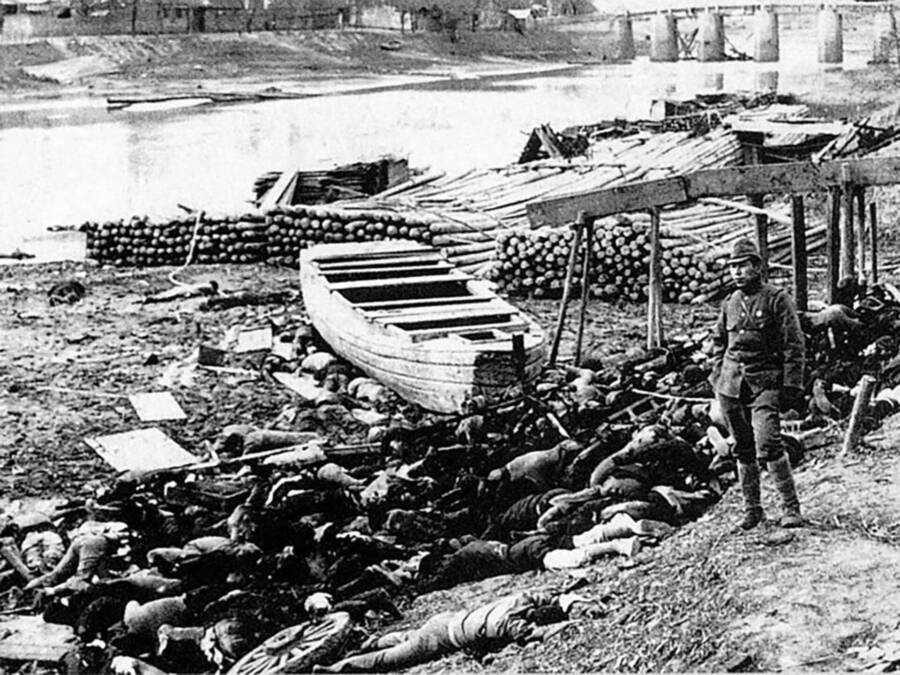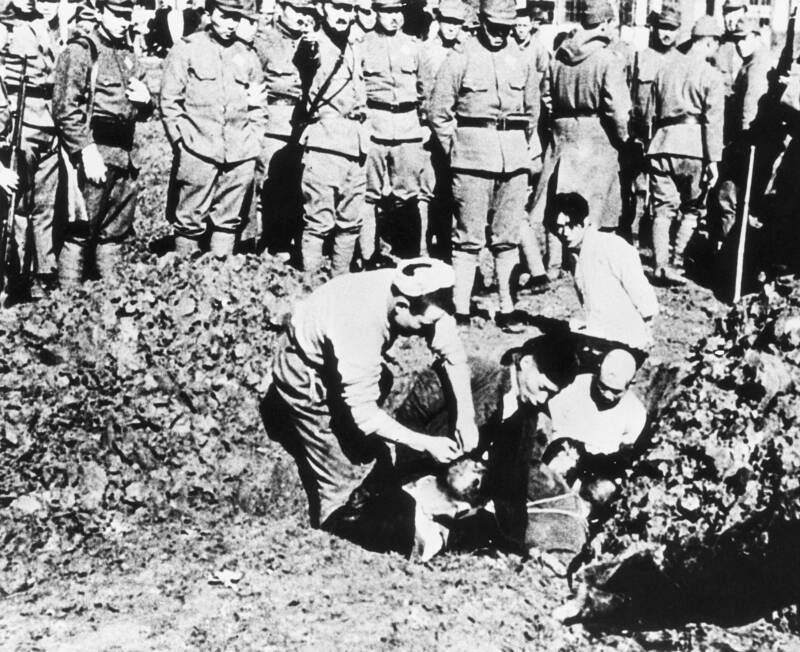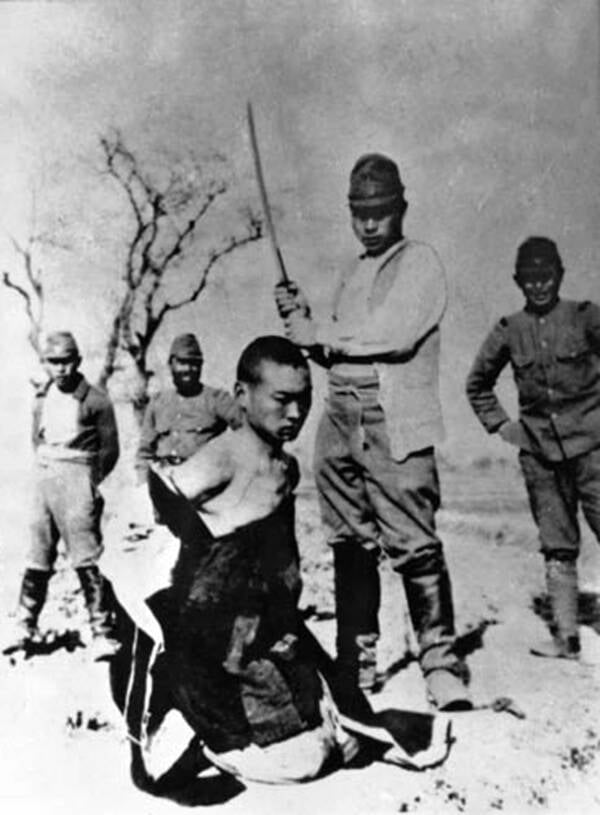Experts believe that at least 25 million people died in the Pacific Theater during World War II, with some of the grisliest deaths befalling Chinese civilians who were systematically tortured by the Imperial Japanese Army.
Many historical narratives of World War II focus on Europe. There, Nazis brought destruction across the continent, massacring millions of people. But Japanese war crimes were just as atrocious.
In the Pacific Theater, the Imperial Army of Japan terrorized people everywhere it went. The infamous Rape of Nanking resulted in the deaths of upwards of 300,000 Chinese civilians, as well as the rapes of between 20,000 to 80,000 girls and women. Secretive Japanese facilities like Unit 731 conducted gruesome medical experiments on prisoners and developed weapons using deadly diseases. And Allied POWs were often subjected to horrific torture and executions, in defiance of international law.

Public DomainBodies line the Qinhuai River after the Rape of Nanking, one of the most infamous Japanese war crimes. Circa 1938.
After the war, some Japanese officers were tried as war criminals and executed.
But many others never faced justice for their crimes. And even in modern times, some politicians and other public figures in Japan either downplay or outright deny that these atrocities happened.
The Rape Of Nanking: One Of The Worst Japanese War Crimes

Bettmann/Getty ImagesChinese prisoners being buried alive by the Japanese during the Rape of Nanking.
In the summer of 1937, the Empire of Japan launched a full-scale ground invasion of China in an effort to permanently crush Chinese resistance. After the Japanese soldiers painstakingly conquered cities like Shanghai, they turned their attention to the nation’s then-capital: Nanking.
In December of that same year, Japanese troops arrived in the capital city, which contained about half a million civilians and 90,000 soldiers. The Japanese convinced the Chinese soldiers to surrender by promising them fair treatment. The soldiers agreed, and were promptly executed.
With the city undefended, the infamous Rape of Nanking began.

Pictures From History/Universal Images Group via Getty ImagesAn execution during the Nanking Massacre, which left upwards of 300,000 Chinese civilians dead.
Driven by the cold logic that they couldn’t feed captives, nor enter a long battle against guerrillas, the Japanese troops systematically killed nearly everyone in their sight. Newsweek reports that they flooded the city, shooting unarmed civilians, and went door to door to massacre any occupants.
Civilians were starved, burned alive, buried alive, and beheaded. Babies were bayoneted and tossed in boiling water. And tens of thousands of women and girls — estimates range from 20,000 to 80,000 — were brutally raped.
The Rape of Nanking was so horrifying that it even shocked some of the Nazis. German businessman John Rabe, the leader of a local Nazi Party that was stationed in China, was horrified by the violence that he witnessed and used his influence to help save an estimated 250,000 Chinese civilians. But hundreds of thousands of other civilians weren’t so lucky.
Though estimates vary, the Rape of Nanking resulted in the deaths of upwards of 300,000 Chinese people. That’s more than the total number of people who died in Hiroshima and Nagasaki — combined.
Japanese General Matsui Iwane, who ordered the destruction of the city, was later found guilty of numerous war crimes by the International Military Tribunal for the Far East. He was sentenced to death, but the grisly legacy of the Rape of Nanking continues to hang over Japan and China to this day.





